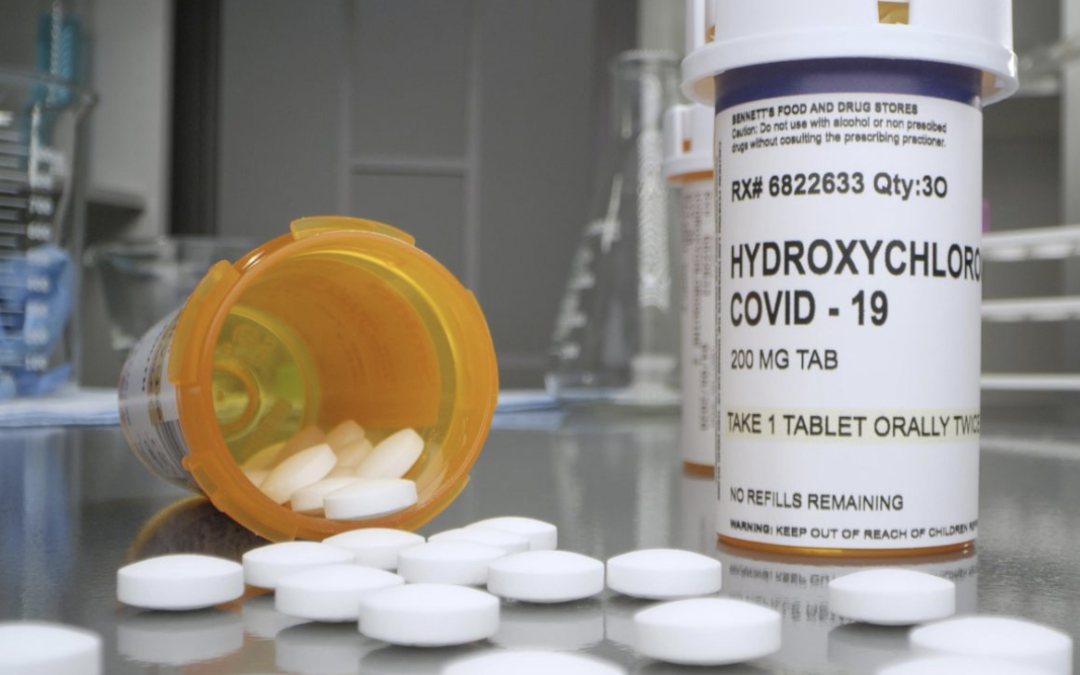In an unprecedented move, hydroxychloroquine was given to residents without COVID-19. According to a Philadelphia Inquirer article, during a two week period in April a Chester County nursing home for veterans dispensed hydroxychloroquine, the antimalarial drug determined by the FDA last month to trigger cardiac issues as well as other negative side effects in COVID-19 patients, as a treatment for certain of its ill residents. Many of the veterans who received the drug had not been tested for COVID-19, and suffered from health conditions known to exacerbate hydroxychloroquine’s dangerous side effects.
The Southeastern Veterans’ Center in Chester County, PA, plagued by a growing coronavirus crisis, resorted to using the unproven regimen with the approval of the Pennsylvania Department of Military and Veteran’s Affairs, which operates this center plus five other state homes for veterans. It is estimated that 30 residents at Southeastern received the drug. According to the Chester County coroner, at least 14 of the center’s patients whose deaths were associated with the coronavirus had never been tested for COVID-19. Of those 14, 11 had been given hydroxychloroquine.
According to the article, the home stopped using the drug about April 22 when reports about the high death rate of COVID-19 patients treated with hydroxychloroquine surfaced.
Nurses who work for the center but remained anonymous for the article said they were given little information regarding the hydroxychloroquine regimen, which was dispensed as a cocktail that also included azithromycin, an antibiotic. When their questions went unanswered by doctors and top administrators, these nurses, fearful for their jobs, did not press the matter further, particularly since Southeastern seemed to have the support of the Department of Military and Veterans Affairs and the state Department of Health. The PA DOH, which inspected the home on May 1, cited no deficiencies in infection control or patient care, despite the fact that, by the end of April, 26 residents at the center had died of COVID-19, prompting state and local officials to call for an investigation.
The article said that the directive to treat residents not officially diagnosed with the infection as COVID-19 patients came from the county health department. According to Southeastern, the Chester County Health Department ordered that no further testing be conducted once two or more residents within one unit tested positive, Instead, the center should presume any other unit patients exhibiting symptoms to be positive. According to some Southeastern nurses and nursing assistants, the hydroxychloroquine cocktail was given to untested patients with prior heart and bronchial ailments whose symptoms mimicked COVID-19. Two of these untested patients died. Whether or not the course of treatment contributed to these deaths is unknown.
Family members of Southeastern residents treated with hydroxychloroquine claim to have received only brief, undetailed communication from the home on the matter, despite federal requirements that nursing homes give advance information on a drug’s risks, side effects, and alternatives to patients or, in the case of dementia and other cognitive impairments, their families.
In March President Donald Trump touted hydroxychloroquine as a viable treatment for COVID-19, and late that same month the FDA issued an authorization for emergency use, with the caveat that hydroxychloroquine drugs only be used for clinical trials or by hospitals using intense monitoring. Detailed, transparent conversations with patients and families about the risks and side effects of the drug were a must. After later discovering the adverse effects of hydroxychloroquine in COVID-19 patients, the FDA revoked the emergency-use authorization.
Committed to Holding Homes Responsible for Safety
More than ever before, it’s important to ensure that your loved one’s New Jersey or Pennsylvania nursing home is taking the safest measures to protect its residents. If you’re concerned about the safety or quality of care of a Philadelphia/PA or NJ facility during the coronavirus pandemic, or if you suspect neglect or abuse has occurred at the Pennsylvania, Philadelphia, or New Jersey nursing home where your loved one lives, please contact nursing home abuse attorney Brian P. Murphy to discover your legal rights and options.







